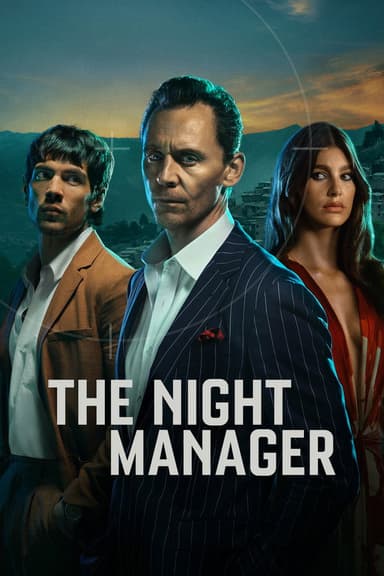
If Tomorrow Comes
1986 • Crime, Drama, Mystery • NR
Tracy Whitney was in love, pregnant and engaged to marry into one of America's best family. And then, with one phone call, she lost everything. After 5 years of unjust imprisonment, Tracy emerges from prison a new woman. Cunning. Ruthless. Determined to survive. But there is one man as formidable as she is. As their paths crisscross, they eventually become daredevil partners in an adventure that climaxes their criminal careers.
Why you should read the novel
Sidney Sheldon's novel If Tomorrow Comes offers a far richer and more immersive experience than the TV adaptation. The book delves deeply into Tracy Whitney's psyche, allowing readers to witness her transformation from an innocent woman into a masterful con artist. Through its clever narrative, you experience the full complexity of her journey and the motivations driving each of her bold choices.
The novel's intricate plotting and vivid international settings are brought to life in ways that film simply cannot capture. Readers are treated to Sheldon's signature twists and dramatic turns, with each chapter building suspense and empathy for Tracy. The shifting locations, ingenious cons, and vibrant cast of characters come alive with detail, rewarding the imagination.
Most importantly, the book immerses you in Tracy's inner world, offering nuanced insights into her evolving feelings, fears, and hopes. By reading the novel, you’re given a firsthand seat on her rollercoaster ride—even the cleverest television adaptation can’t replicate Sheldon’s enthralling prose, sharp dialogue, and psychological depth.
Adaptation differences
One of the primary differences between the TV series and the book lies in the depth of character development. Sidney Sheldon's novel invests significantly more time in exploring Tracy's inner turmoil, growth, and transformation, giving readers access to her thoughts and emotions. In contrast, the mini-series relies on visual cues and dialogue, which can sometimes oversimplify or rush her character arc.
The television adaptation condenses several major plotlines and omits many minor characters and subplots due to time constraints. Tracy’s elaborate cons, which unfold over multiple chapters in the book, are often shortened or combined for pacing in the series. This inevitably reduces the intricacies of her schemes and the subtleties of her interactions with adversaries.
Additionally, the adaptation alters or softens certain darker elements of Tracy's journey and the people she encounters. The TV series sometimes makes events or character motivations more straightforward and less morally ambiguous to fit typical television standards and audience expectations. This changes the tone of some of the more shocking or thought-provoking moments from the novel.
Finally, while the mini-series is visually appealing and benefits from strong performances, it cannot fully replicate the unique narrative voice and clever prose that define Sidney Sheldon's writing. The book’s pacing, suspenseful cliffhangers, and intricate details become less prominent on screen, making the reading experience unforgettable for those seeking a deeper connection with Tracy and her world.
If Tomorrow Comes inspired from
If Tomorrow Comes
by Sidney Sheldon









